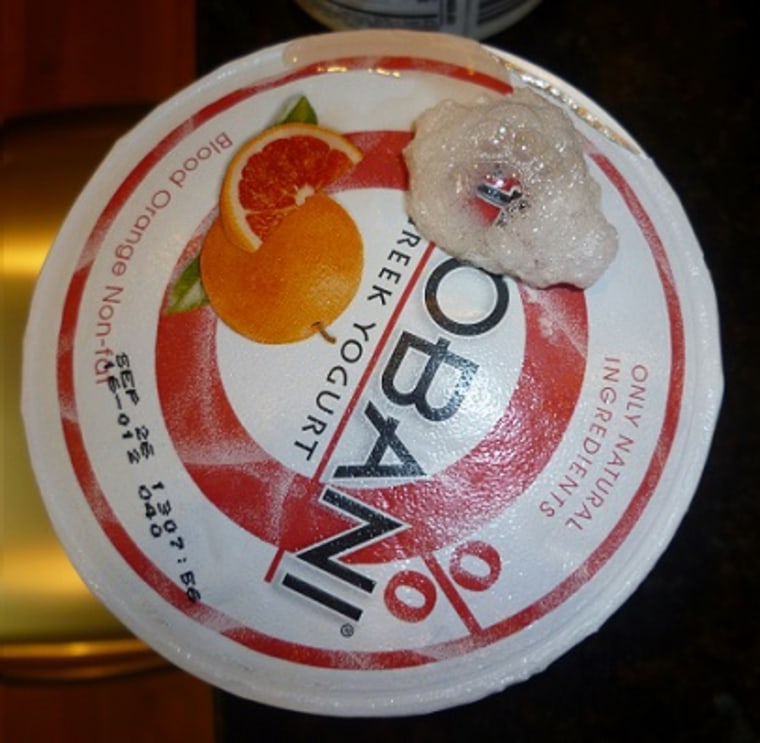An inspection at the Chobani plant linked to a recall of moldy yogurt and more than 200 consumer complaints yielded no report of significant objections, federal health officials said Monday.
Food and Drug Administration inspectors visited the Twin Falls, Idaho, production site on Sept. 5, but did not issue what’s known as an FDA Form 483, an official documentation of problems that could lead to harm.
But that doesn’t mean the case is closed, more than two weeks after the Greek yogurt maker issued a nationwide recall because some retail cartons were bulging, bubbling and spoiled and some consumers said it made them sick.
“FDA’s investigation in the Chobani Greek yogurt recall is still ongoing and the agency cannot provide specific details at this time,” FDA spokeswoman Tamara Ward said in an email to NBC News.
As of Monday, FDA had received 223 complaints from consumers associated with Chobani yogurt, including reports of cramps, nausea, headache and diarrhea after eating the recalled yogurt, Ward said. However, that reflects only filed reports and does not mean that the product actually caused any illnesses, the FDA says.
Chobani officials have said that they detected the mold Mucor circinelloides in samples of yogurt. The mold typically causes spoilage in plants, but doesn’t pose harm to most people, except those with compromised immune systems, food safety experts said.
Don Schaffner, a professor of food science at Rutgers University, told NBC News that fruit could have been the culprit.
“I’m guessing the source may have been a fruit filling that let the organism into the plant and then poor sanitation allowed it to spread to the implicated products,” he wrote in an email to NBC News.
A spokeswoman for Chobani, Amy Juaristi, didn’t respond to questions about the fruit filling, but said that the company was working hard to clear up the problem after the Sept. 5 recall. That came about a week after the company launched a voluntary withdrawal to pull products off retail shelves nationwide.
“We identified the specific line at our Idaho plant where we discovered the issue and increased our already stringent quality assurance procedures, including sanitation,” she told NBC News in an email. “We are working closely with our suppliers and have taken corrective actions designed to prevent this issue from happening again.”
FDA typically issues written inspection reports, called Form 483s, when there are significant observations that any food, drug, device or cosmetic may have been adulterated or are being prepared, packed or held under conditions in which they may become adulterated or harm human health.
Less-serious observations are not listed on a Form 483, but are discussed with a firm’s management so that they understand how uncorrected problems could become violations, Ward said.
JoNel Aleccia is a senior health reporter with NBC News. Reach her on Twitter at @JoNel_Aleccia or send her an email.
